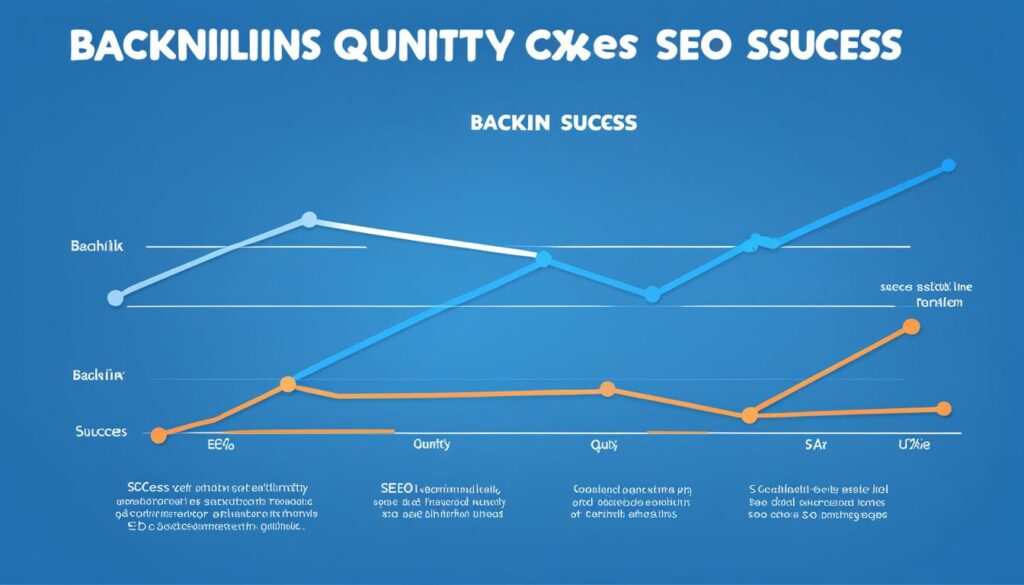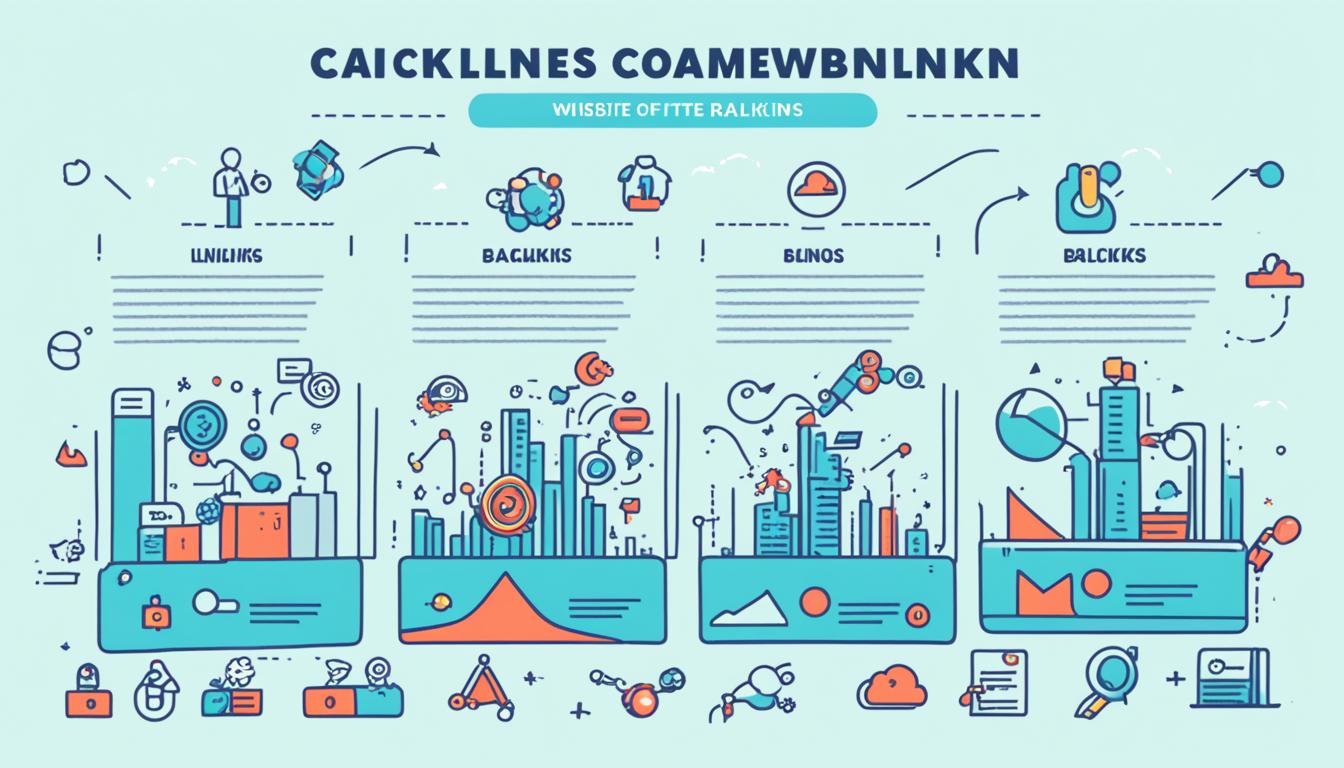When it comes to optimizing your website for search engines, backlinks play a crucial role in determining your ranking. But have you ever wondered how many backlinks are too many? Is there an optimal number that can propel your site to the top of search engine results?
Today, we delve into this intriguing question and uncover the truth behind backlink quantity. Prepare to challenge your beliefs and gain a deeper understanding of the impact backlinks can have on your SEO success.
So, how many backlinks should your website have? The answer might surprise you. While it’s true that having a certain number of backlinks is essential for SEO, the quality of those backlinks is even more important. In fact, having too many backlinks can actually harm your website’s rankings.
In this article, we’ll explore the optimal backlink amount for your site and uncover the factors that influence backlink quantity. We’ll also reveal proven strategies for building quality backlinks that can boost your SEO without overdoing it.
Ready to unlock the secrets of backlink optimization? Let’s dive in!
Key Takeaways:
- The quality of backlinks is more important than quantity for SEO success.
- Aim for a moderate number of backlinks that are high-quality and relevant to your website.
- Factors like domain authority, keyword difficulty, and internal linking can influence the number of backlinks your site needs.
- Optimizing on-page SEO and following proven strategies can help you achieve SEO success with fewer backlinks.
- A gradual and natural acquisition of backlinks is recommended to avoid potential penalties.
Factors Affecting Backlink Quantity
When it comes to the number of backlinks your website needs, several factors come into play. These factors include:
1. Domain Authority
Domain authority is a measure of your domain’s overall strength and credibility. Websites with higher domain authority tend to rank higher in search engine results. In other words, the more authoritative your website is, the fewer backlinks you may need to achieve higher rankings. Building a strong domain authority through high-quality content, user engagement, and natural link acquisition can positively impact your backlink quantity and SEO success.
2. Keyword Difficulty
Keyword difficulty refers to how competitive and challenging it is to rank for a specific keyword. More competitive keywords usually require more backlinks to outrank other websites in search engine results. As the competition increases, the number of backlinks needed to achieve higher rankings also tends to increase. Conduct thorough keyword research and consider the keyword difficulty level when determining how many backlinks your website needs for optimal SEO performance.
3. Internal Linking
Internal linking refers to the number of internal links a page receives within your own website. These internal links help search engines understand the structure and hierarchy of your website’s content. Internal linking can impact the number of backlinks needed for higher rankings because a well-structured internal linking strategy can distribute the authority across different pages on your website. By strategically interlinking relevant content, you can strengthen your website’s overall authority and minimize the number of external backlinks required.
“The number of backlinks needed for SEO success depends on various factors, including domain authority, keyword difficulty, and internal linking. By understanding these factors, you can optimize your backlink strategy to achieve better rankings in search engine results.”
By considering these factors and tailoring your backlink strategy accordingly, you can optimize your website’s backlink quantity and increase your chances of SEO success. Remember, it’s not just about the number of backlinks but also the quality and relevance of those backlinks.
| Factors Affecting Backlink Quantity | Description |
|---|---|
| Domain Authority | Measure of a domain’s strength and credibility |
| Keyword Difficulty | Competitiveness of keywords in ranking |
| Internal Linking | Number of internal links within your website |
Achieving Backlink Success with Less
While many may believe that the more backlinks a website has, the better it will perform in terms of SEO, the truth is that backlink quality matters more than quantity. In fact, a single high-quality and authoritative backlink can have a greater impact on your search engine rankings than multiple low-quality links. So, how can you achieve backlink success with fewer links? By focusing on backlink quality, optimizing your on-page SEO, and ensuring keyword relevance in your content.
To start, prioritize acquiring high-quality backlinks from reputable and authoritative websites. These backlinks can carry more weight and influence in search engine algorithms, boosting your website’s credibility and visibility. Partnering with influencers or industry leaders who have a strong online presence can be a great way to obtain valuable backlinks.
In addition to backlink quality, on-page SEO plays a crucial role in maximizing the impact of your backlinks. By optimizing your website’s structure, meta tags, headings, and content, you can enhance its relevance and visibility to search engines. This, in turn, improves the overall performance of your backlinks and increases the chances of higher rankings in search results.
Furthermore, keyword relevance is key when it comes to backlink success. Using keyword-rich anchor text to link to your website not only helps search engines understand the context and relevance of your content but also enhances its visibility for specific search queries. Make sure to conduct thorough keyword research and strategically incorporate relevant keywords in your anchor text for optimal results.
In summary, backlink success can be achieved with fewer links by prioritizing backlink quality, optimizing your on-page SEO, and ensuring keyword relevance in your content. By focusing on these aspects, you can enhance the impact of your backlinks, improve your website’s visibility, and ultimately drive more organic traffic to your site.
Important Factors to Consider for Backlink Success
| Factors | Description |
|---|---|
| Backlink Quality | The authority, relevance, and credibility of the websites linking to your site. |
| On-Page SEO | The optimization of your website’s structure, meta tags, headings, and content. |
| Keyword Relevance | The use of keyword-rich anchor text and relevant keywords in your content. |
The Relationship Between Backlink Quantity and SEO Success
The relationship between backlink quantity and SEO success is not a straightforward one. While having more backlinks can be beneficial, the rate at which they are acquired and the quality of the backlinks are also important factors.
Acquiring backlinks at a gradual rate is generally recommended to appear more natural to search engines. This approach helps avoid potential penalties and ensures a more sustainable backlink profile. Backlinks acquired too quickly can raise red flags to search engines and may be perceived as manipulative or spammy.
Additionally, the impact of backlinks can vary over time. Search engines constantly refine their algorithms, and the value of backlinks can change as well. It is essential to monitor the performance of backlinks and adapt strategies accordingly.
Let’s take a closer look at the correlation between backlink acquisition rate and SEO success:
“The ideal backlink acquisition rate depends on various factors, including the website’s age, industry, and competitors,” says Mark Johnson, an SEO specialist at Digital Boost Marketing. “A website that suddenly gains hundreds of backlinks within a short period may raise suspicions and harm its overall rankings.”
It’s important to strike a balance between consistency and quantity when building backlinks. Building a natural backlink profile over time can help establish credibility and improve organic search rankings.
Remember, the quality of backlinks is just as important as the quantity. It’s advisable to prioritize obtaining high-quality backlinks from authoritative sources that are relevant to your website’s niche. These backlinks carry more weight and have a greater impact on SEO success.
Now, let’s move on to explore proven strategies for building quality backlinks.

Proven Strategies for Building Quality Backlinks
To build high-quality backlinks, there are several strategies that have been proven effective. These include:
- Blogger Outreach: Reach out to relevant bloggers in your industry to collaborate on content and earn backlinks. Building relationships with influential bloggers can help you gain exposure and credibility in your niche.
- High-Quality Content: Create valuable and engaging content that meets the needs and interests of your target audience. When you consistently produce high-quality content, other websites are more likely to link back to your site.
- Guest Posts: Leverage the opportunity to contribute guest posts on authoritative websites in your industry. Guest posting allows you to showcase your expertise and reach a wider audience, while also earning valuable backlinks.
- Competitor Link Building: Analyze your competitors’ backlink profiles to identify potential link opportunities. By reaching out to websites that link to your competitors, you can pitch them your content or value propositions to earn similar backlinks.
- Niche Edits: Identify relevant and popular pieces of content in your niche and add a backlink to your website. This strategy involves reaching out to the website owner or editor to request the addition of your link to their existing content.
These strategies can help you acquire high-quality backlinks that can improve your website’s search engine rankings and increase organic traffic.
Example of Effective Blogger Outreach:
“Hi [Blogger’s Name],
I’m a big fan of your blog and have been following your work for some time. I recently came across your article on [relevant topic], and I thought it was incredibly insightful.
I’m reaching out to see if you would be interested in collaborating on a piece of content related to [specific topic]. I have some unique insights and data that I believe would be valuable to your audience. In exchange for including my backlink in the article, I would be happy to promote the piece on my social media platforms and link back to your blog.
Please let me know if you’re open to discussing this further. I look forward to the possibility of working together!
Best regards,
[Your Name]”
Implementing these strategies can significantly enhance your backlink profile and contribute to the long-term success of your SEO efforts. By focusing on blogger outreach, creating high-quality content, leveraging guest posts, engaging in competitor link building, and exploring niche edit opportunities, you can establish a robust backlink portfolio that improves your website’s visibility and authority in search engine results.
Conclusion
In conclusion, achieving SEO success through backlink optimization requires a strategic approach. While the number of backlinks a website needs can vary, it is crucial to focus on quality rather than quantity. High-quality backlinks from authoritative sources have a stronger impact on search engine rankings and overall website visibility.
To optimize your backlink strategy, prioritize on-page SEO by ensuring your content is well-optimized with relevant keywords and user-friendly. Utilize keyword-rich anchor text when linking to your website from external sources, as it helps search engines recognize the relevance and authority of your content.
Additionally, implementing proven backlink strategies such as blogger outreach, guest posting on authoritative websites, competitor link building, and niche edits can help you acquire high-quality backlinks that enhance your website’s SEO performance.
By focusing on acquiring a moderate number of high-quality backlinks and implementing effective backlink strategies, you can achieve SEO success without relying solely on the quantity of backlinks. Remember, it’s the quality and relevance of your backlinks that truly make a difference in improving your website’s visibility and driving organic traffic.
